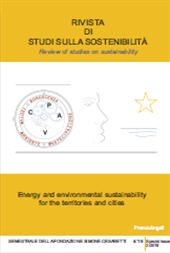Biowaste in a circular bioeconomy in Mediterranean area : a case study of compost and vermicompost as growing substrates alternative to peat
345-362 p.
European policies are advocating a transition toward circular bio-economy, an economy aiming at reducing the dependence from fossil-based resources, limiting greenhouse gas emissions and environmental impacts. The aim of this paper is to assess the potential for circularity for bio-waste and related by-products, to highlight the role of compost and vermicompost in the circular bioeconomy and their use in the agricultural sector. Three different substrates were tested in the soilless cultivation of Salvia officinalis, a Mediterranean nutraceutical and healthy plant: vermicompost (40%), compost (40%) and peat (100%). The average values of the main biometric parameters were calculated and compared. Compost and vermicompost can be considered as sustainable peat alternative growing substrates. [Publisher's text].
-
Articles du même numéro (disponibles individuellement)
-
Informations
Code DOI : 10.3280/RISS2019-002-S1022
ISSN: 2239-1959
KEYWORDS
- Sustainable bio-waste management, nutraceutical and healthy plants, circular bioeconomy, sustainable peat alternative growing media, compost, vermicompost


